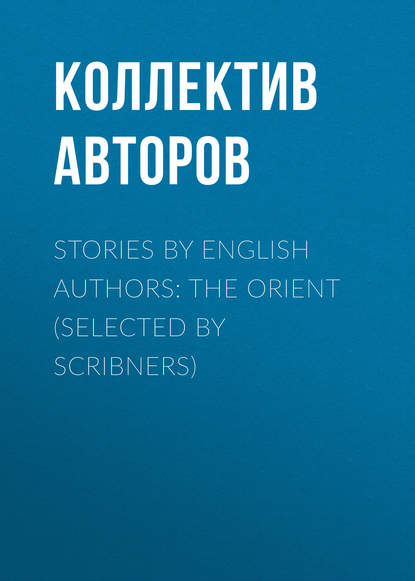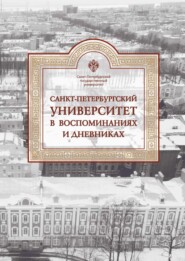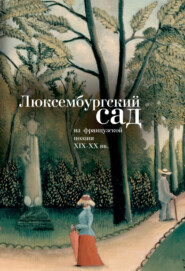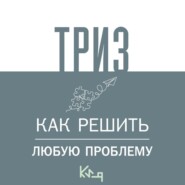По всем вопросам обращайтесь на: info@litportal.ru
(©) 2003-2024.
✖
Stories by English Authors: The Orient (Selected by Scribners)
Настройки чтения
Размер шрифта
Высота строк
Поля
“Since you, sir, and your cousin have honoured me with your regard, I dare not altogether decline your proposal, and I would therefore beg you, sir, to hand this,” she added, producing the box of ointment, “to your honourable cousin, as a token of the bond between us, and to convey to her my promise that, if I don’t marry her, I will never marry another lady.”
Mr. King, with the greatest delight, received the box, and handing it to the waiting-woman, who stood expectant by, bade her carry it to her mistress, with the news of the engagement. Jasmine now hoped that her immediate troubles were over, but King insisted on celebrating the event by a feast, and it was not until late in the afternoon that she succeeded in making a start. Once on the road, her anxiety to reach Peking was such that she travelled night and day, “feeding on wind and lodging in water.” Nor did she rest until she reached a hotel within the Hata Gate of the capital.
Jasmine’s solitary journey had given her abundant time for reflection, and for the first time she had set herself seriously to consider her position. She recognised that she had hitherto followed only the impulses of the moment, of which the main one had been the desire to escape complications by the wholesale sacrifice of truth; and she acknowledged to herself that, if justice were evenly dealt out, there must be a Nemesis in store for her which would bring distress and possibly disaster upon her. In her calmer moments she felt an instinctive foreboding that she was approaching a crisis in her fate, and it was with mixed feelings, therefore, that on the morning after her arrival she prepared to visit Tu and Wei, who were as yet ignorant of her presence.
She dressed herself with more than usual care for the occasion, choosing to attire herself in a blue silk robe and a mauve satin jacket which Tu had once admired, topped by a brand-new cap. Altogether her appearance as she passed through the streets justified the remark made by a passerby: “A pretty youngster, and more like a maiden of eighteen than a man.”
The hostelry at which Tu and Wei had taken up their abode was an inn befitting the dignity of such distinguished scholars. On inquiring at the door, Jasmine was ushered by a servant through a courtyard to an inner enclosure, where, under the grateful shade of a wide-spreading cotton-tree, Tu was reclining at his ease. Jasmine’s delight at meeting her friend was only equalled by the pleasure with which Tu greeted her. In his strong and gracious presence she became conscious that she was released from the absorbing care which had haunted her, and her soul leaped out in new freedom as she asked and answered questions of her friend. Each had much to say, and it was not for some time, when an occasional reference brought his name forward that Jasmine noticed the absence of Wei. When she did, she asked after him.
“He left this some days ago,” said Tu, “having some special business which called for his presence at home. He did not tell me what it was, but doubtless it was something of importance.” Jasmine said nothing, but felt pretty certain in her mind as to the object of his hasty return.
Tu, attributing her silence to a reflection on Wei for having left the capital before her father’s affair was settled, hastened to add:
“He was very helpful in the matter of your honoured father’s difficulty, and only left when he thought he could not do any more.”
“How do matters stand now?” asked Jasmine, eagerly.
“We have posted a memorial at the palace gate,” said Tu, “and have arranged that it shall reach the right quarter. Fortunately, also, I have an acquaintance in the Board of War who has undertaken to do all he can in that direction, and promises an answer in a few days.”
“I have brought with me,” said Jasmine, “a petition prepared by my father. What do you think about presenting it?”
“At present I believe that it would only do harm. A superabundance of memorials is as bad as none at all. Beyond a certain point, they only irritate officials.”
“Very well,” said Jasmine; “I am quite content to leave the conduct of affairs in your hands.”
“Well then,” said Tu, “that being understood, I propose that you should move your things over to this inn. There is Wei’s room at your disposal, and your constant presence here will be balm to my lonely spirit. At the Hata Gate you are almost as remote as if you were in our study at Mienchu.”
Jasmine was at first startled by this proposal. Though she had been constantly in the company of Tu, she had never lived under the same roof with him, and she at once recognised that there might be difficulties in the way of her keeping her secret if she were to be constantly under the eyes of her friend. But she had been so long accustomed to yield to the present circumstances, and was so confident that Fortune, which, with some slight irregularities, had always stood her friend, would not desert her on the present occasion, that she gave way.
“By all means,” she said. “I will go back to my inn, and bring my things at once. This writing-case I will leave here. I brought it because it contains my father’s petition.”
So saying, she took her leave, and Tu retired to his easy-chair under the cotton-tree. But the demon of curiosity was abroad, and alighting on the arm of Tu’s chair, whispered in his ear that it might be well if he ran his eye over Colonel Wen’s petition to see if there was any argument in it which he had omitted in his statement to the Board of War. At first, Tu, whose nature was the reverse of inquisitive, declined to listen to these promptings, but so persistent did they become that he at last put down his book – “The Spring and Autumn Annals” – and, seating himself, at the sitting-room table, opened the writing-case so innocently left by Jasmine. On the top were a number of red visiting-cards bearing the inscription, in black, of Wen Tsunk’ing, and beneath these was the petition. Carefully Tu read it through, and passed mental eulogies on it as he proceeded. The colonel had put his case skilfully, but Tu had no difficulty in recognising Jasmine’s hand, both in the composition of the document and in the penmanship. “If my attempt,” he thought, “does not succeed, we will try what this will do.” He was on the point of returning it to its resting-place, when he saw another document in Jasmine’s handwriting lying by it. This was evidently a formal document, probably connected, as he thought, with the colonel’s case, and he therefore unfolded it and read as follows:
“The faithful maiden, Miss Wen of Mienchu Hien, with burning incense reverently prays the God of War to release her father from his present difficulties, and speedily to restore peace to her own soul by nullifying, in accordance with her desire, the engagement of the bamboo arrow and the contract of the box of precious ointment. A respectful petition.”
As Tu read on, surprise and astonishment took possession of his countenance. A second time he read it through, and then, throwing himself back in his chair, broke out into a fit of laughter.
“So,” he said to himself, “I have allowed myself to be deceived by a young girl all these years. And yet not altogether deceived,” he added, trying to find an excuse for himself; “for I have often fancied that there was the savour of a woman about the ‘young noble.’ I hope she is not one of those heaven-born genii who appear on earth to plague men, and who, just when they have aroused the affections they wished to excite, ascend through the air and leave their lovers mourning.”
Just at this moment the door opened, and Jasmine entered, looking more lovely than ever, with the flush begotten by exercise on her beautifully moulded cheeks. At sight of her Tu again burst out laughing, to Jasmine’s not unnatural surprise, who, thinking that there must be something wrong with her dress, looked herself up and down, to the increasing amusement of Tu.
“So,” said he at last, “you deceitful little hussy, you have been deceiving me all these years by passing yourself off as a man, when in reality you are a girl.”
Overcome with confusion, Jasmine hung her head, and murmured:
“Who has betrayed me?”
“You have betrayed yourself,” said Tu, holding up the incriminating document; “and here we have the story of the arrow with which you shot the hawk, but what the box of precious ointment means I don’t know.”
Confronted with this overwhelming evidence, poor Jasmine remained speechless, and dared not even lift her eyes to glance at Tu. That young man, seeing her distress, and being in no wise possessed by the scorn which he had put into his tone, crossed over to her and gently led her to a seat by him.
“Do you remember,” he said, in so altered a voice that Jasmine’s heart ceased to throb as if it wished to force an opening through the finely formed bosom which enclosed it, “on one occasion in our study at home I wished that you were a woman that you might become my wife? Little did I think that my wish might be gratified. Now it is, and I beseech you to let us join our lives in one, and seek the happiness of the gods in each other’s perpetual presence.”
But, as if suddenly recollecting herself, Jasmine withdrew her hand from his, and, standing up before him with quivering lip and eyes full of tears, said:
“No. It can never be.”
“Why not?” said Tu, in alarmed surprise.
“Because I am bound to Wei.”
“What! Does Wei know your secret?”
“No. But do you remember when I shot that arrow in front of your study?”
“Perfectly,” said Tu. “But what has that to do with it?”
“Why, Wei discovered my name on the shaft, and I, to keep my secret, told him that it was my sister’s name. He then wanted to marry my sister, and I undertook, fool that I was, to arrange it for him. Now I shall be obliged to confess the truth, and he will have a right to claim me instead of my supposed sister.”
“But,” said Tu, “I have a prior right to that of Wei, for it was I who found the arrow. And in this matter I shall be ready to outface him at all hazards. But,” he added, “Wei, I am sure, is not the man to take an unfair advantage of you.”
“Do you really think so?” asked Jasmine.
“Certainly I do,” said Tu.
“Then – then – I shall be – very glad,” said poor Jasmine, hesitatingly, overcome with bashfulness, but full of joy.
At which gracious consent Tu recovered the hand which had been withdrawn from his, and Jasmine sank again into the chair at his side.
“But, Tu, dear,” she said, after a pause, “there is something else that I must tell you before I can feel that my confessions are over.”
“What! You have not engaged yourself to any one else, have you?” said Tu, laughing.
“Yes, I have,” she replied, with a smile; and she then gave her lover a full and particular account of how Mr. King had proposed to her on behalf of his cousin, and how she had accepted her.
“How could you frame your lips to utter such untruths?” said Tu, half laughing and half in earnest.
“O Tu, falsehood is so easy and truth so difficult sometimes. But I feel that I have been very, very wicked,” said poor Jasmine, covering her face with her hands.
“Well, you certainly have got yourself into a pretty hobble. So far as I can make out, you are at the present moment engaged to one young lady and two young men.”
The situation, thus expressed, was so comical that Jasmine could not refrain from laughing through her tears; but, after a somewhat lengthened consultation with her lover, her face recovered its wonted serenity, and round it hovered a halo of happiness which added light and beauty to every feature. There is something particularly entrancing in receiving the first confidences of a pure and loving soul. So Tu thought on this occasion, and while Jasmine was pouring the most secret workings of her inmost being into his ear, those lines of the poet of the Sung dynasty came irresistibly into his mind:
‘T is sweet to see the flowers woo the sun,
To watch the quaint wiles of the cooing dove,
But sweeter far to hear the dulcet tones
Of her one loves confessing her great love.
But there is an end to everything, even to the “Confucian Analects,” and so there was also to this lovers’ colloquy. For just as Jasmine was explaining, for the twentieth time, the origin and basis of her love for Tu, a waiter entered to announce the arrival of her luggage.
Mr. King, with the greatest delight, received the box, and handing it to the waiting-woman, who stood expectant by, bade her carry it to her mistress, with the news of the engagement. Jasmine now hoped that her immediate troubles were over, but King insisted on celebrating the event by a feast, and it was not until late in the afternoon that she succeeded in making a start. Once on the road, her anxiety to reach Peking was such that she travelled night and day, “feeding on wind and lodging in water.” Nor did she rest until she reached a hotel within the Hata Gate of the capital.
Jasmine’s solitary journey had given her abundant time for reflection, and for the first time she had set herself seriously to consider her position. She recognised that she had hitherto followed only the impulses of the moment, of which the main one had been the desire to escape complications by the wholesale sacrifice of truth; and she acknowledged to herself that, if justice were evenly dealt out, there must be a Nemesis in store for her which would bring distress and possibly disaster upon her. In her calmer moments she felt an instinctive foreboding that she was approaching a crisis in her fate, and it was with mixed feelings, therefore, that on the morning after her arrival she prepared to visit Tu and Wei, who were as yet ignorant of her presence.
She dressed herself with more than usual care for the occasion, choosing to attire herself in a blue silk robe and a mauve satin jacket which Tu had once admired, topped by a brand-new cap. Altogether her appearance as she passed through the streets justified the remark made by a passerby: “A pretty youngster, and more like a maiden of eighteen than a man.”
The hostelry at which Tu and Wei had taken up their abode was an inn befitting the dignity of such distinguished scholars. On inquiring at the door, Jasmine was ushered by a servant through a courtyard to an inner enclosure, where, under the grateful shade of a wide-spreading cotton-tree, Tu was reclining at his ease. Jasmine’s delight at meeting her friend was only equalled by the pleasure with which Tu greeted her. In his strong and gracious presence she became conscious that she was released from the absorbing care which had haunted her, and her soul leaped out in new freedom as she asked and answered questions of her friend. Each had much to say, and it was not for some time, when an occasional reference brought his name forward that Jasmine noticed the absence of Wei. When she did, she asked after him.
“He left this some days ago,” said Tu, “having some special business which called for his presence at home. He did not tell me what it was, but doubtless it was something of importance.” Jasmine said nothing, but felt pretty certain in her mind as to the object of his hasty return.
Tu, attributing her silence to a reflection on Wei for having left the capital before her father’s affair was settled, hastened to add:
“He was very helpful in the matter of your honoured father’s difficulty, and only left when he thought he could not do any more.”
“How do matters stand now?” asked Jasmine, eagerly.
“We have posted a memorial at the palace gate,” said Tu, “and have arranged that it shall reach the right quarter. Fortunately, also, I have an acquaintance in the Board of War who has undertaken to do all he can in that direction, and promises an answer in a few days.”
“I have brought with me,” said Jasmine, “a petition prepared by my father. What do you think about presenting it?”
“At present I believe that it would only do harm. A superabundance of memorials is as bad as none at all. Beyond a certain point, they only irritate officials.”
“Very well,” said Jasmine; “I am quite content to leave the conduct of affairs in your hands.”
“Well then,” said Tu, “that being understood, I propose that you should move your things over to this inn. There is Wei’s room at your disposal, and your constant presence here will be balm to my lonely spirit. At the Hata Gate you are almost as remote as if you were in our study at Mienchu.”
Jasmine was at first startled by this proposal. Though she had been constantly in the company of Tu, she had never lived under the same roof with him, and she at once recognised that there might be difficulties in the way of her keeping her secret if she were to be constantly under the eyes of her friend. But she had been so long accustomed to yield to the present circumstances, and was so confident that Fortune, which, with some slight irregularities, had always stood her friend, would not desert her on the present occasion, that she gave way.
“By all means,” she said. “I will go back to my inn, and bring my things at once. This writing-case I will leave here. I brought it because it contains my father’s petition.”
So saying, she took her leave, and Tu retired to his easy-chair under the cotton-tree. But the demon of curiosity was abroad, and alighting on the arm of Tu’s chair, whispered in his ear that it might be well if he ran his eye over Colonel Wen’s petition to see if there was any argument in it which he had omitted in his statement to the Board of War. At first, Tu, whose nature was the reverse of inquisitive, declined to listen to these promptings, but so persistent did they become that he at last put down his book – “The Spring and Autumn Annals” – and, seating himself, at the sitting-room table, opened the writing-case so innocently left by Jasmine. On the top were a number of red visiting-cards bearing the inscription, in black, of Wen Tsunk’ing, and beneath these was the petition. Carefully Tu read it through, and passed mental eulogies on it as he proceeded. The colonel had put his case skilfully, but Tu had no difficulty in recognising Jasmine’s hand, both in the composition of the document and in the penmanship. “If my attempt,” he thought, “does not succeed, we will try what this will do.” He was on the point of returning it to its resting-place, when he saw another document in Jasmine’s handwriting lying by it. This was evidently a formal document, probably connected, as he thought, with the colonel’s case, and he therefore unfolded it and read as follows:
“The faithful maiden, Miss Wen of Mienchu Hien, with burning incense reverently prays the God of War to release her father from his present difficulties, and speedily to restore peace to her own soul by nullifying, in accordance with her desire, the engagement of the bamboo arrow and the contract of the box of precious ointment. A respectful petition.”
As Tu read on, surprise and astonishment took possession of his countenance. A second time he read it through, and then, throwing himself back in his chair, broke out into a fit of laughter.
“So,” he said to himself, “I have allowed myself to be deceived by a young girl all these years. And yet not altogether deceived,” he added, trying to find an excuse for himself; “for I have often fancied that there was the savour of a woman about the ‘young noble.’ I hope she is not one of those heaven-born genii who appear on earth to plague men, and who, just when they have aroused the affections they wished to excite, ascend through the air and leave their lovers mourning.”
Just at this moment the door opened, and Jasmine entered, looking more lovely than ever, with the flush begotten by exercise on her beautifully moulded cheeks. At sight of her Tu again burst out laughing, to Jasmine’s not unnatural surprise, who, thinking that there must be something wrong with her dress, looked herself up and down, to the increasing amusement of Tu.
“So,” said he at last, “you deceitful little hussy, you have been deceiving me all these years by passing yourself off as a man, when in reality you are a girl.”
Overcome with confusion, Jasmine hung her head, and murmured:
“Who has betrayed me?”
“You have betrayed yourself,” said Tu, holding up the incriminating document; “and here we have the story of the arrow with which you shot the hawk, but what the box of precious ointment means I don’t know.”
Confronted with this overwhelming evidence, poor Jasmine remained speechless, and dared not even lift her eyes to glance at Tu. That young man, seeing her distress, and being in no wise possessed by the scorn which he had put into his tone, crossed over to her and gently led her to a seat by him.
“Do you remember,” he said, in so altered a voice that Jasmine’s heart ceased to throb as if it wished to force an opening through the finely formed bosom which enclosed it, “on one occasion in our study at home I wished that you were a woman that you might become my wife? Little did I think that my wish might be gratified. Now it is, and I beseech you to let us join our lives in one, and seek the happiness of the gods in each other’s perpetual presence.”
But, as if suddenly recollecting herself, Jasmine withdrew her hand from his, and, standing up before him with quivering lip and eyes full of tears, said:
“No. It can never be.”
“Why not?” said Tu, in alarmed surprise.
“Because I am bound to Wei.”
“What! Does Wei know your secret?”
“No. But do you remember when I shot that arrow in front of your study?”
“Perfectly,” said Tu. “But what has that to do with it?”
“Why, Wei discovered my name on the shaft, and I, to keep my secret, told him that it was my sister’s name. He then wanted to marry my sister, and I undertook, fool that I was, to arrange it for him. Now I shall be obliged to confess the truth, and he will have a right to claim me instead of my supposed sister.”
“But,” said Tu, “I have a prior right to that of Wei, for it was I who found the arrow. And in this matter I shall be ready to outface him at all hazards. But,” he added, “Wei, I am sure, is not the man to take an unfair advantage of you.”
“Do you really think so?” asked Jasmine.
“Certainly I do,” said Tu.
“Then – then – I shall be – very glad,” said poor Jasmine, hesitatingly, overcome with bashfulness, but full of joy.
At which gracious consent Tu recovered the hand which had been withdrawn from his, and Jasmine sank again into the chair at his side.
“But, Tu, dear,” she said, after a pause, “there is something else that I must tell you before I can feel that my confessions are over.”
“What! You have not engaged yourself to any one else, have you?” said Tu, laughing.
“Yes, I have,” she replied, with a smile; and she then gave her lover a full and particular account of how Mr. King had proposed to her on behalf of his cousin, and how she had accepted her.
“How could you frame your lips to utter such untruths?” said Tu, half laughing and half in earnest.
“O Tu, falsehood is so easy and truth so difficult sometimes. But I feel that I have been very, very wicked,” said poor Jasmine, covering her face with her hands.
“Well, you certainly have got yourself into a pretty hobble. So far as I can make out, you are at the present moment engaged to one young lady and two young men.”
The situation, thus expressed, was so comical that Jasmine could not refrain from laughing through her tears; but, after a somewhat lengthened consultation with her lover, her face recovered its wonted serenity, and round it hovered a halo of happiness which added light and beauty to every feature. There is something particularly entrancing in receiving the first confidences of a pure and loving soul. So Tu thought on this occasion, and while Jasmine was pouring the most secret workings of her inmost being into his ear, those lines of the poet of the Sung dynasty came irresistibly into his mind:
‘T is sweet to see the flowers woo the sun,
To watch the quaint wiles of the cooing dove,
But sweeter far to hear the dulcet tones
Of her one loves confessing her great love.
But there is an end to everything, even to the “Confucian Analects,” and so there was also to this lovers’ colloquy. For just as Jasmine was explaining, for the twentieth time, the origin and basis of her love for Tu, a waiter entered to announce the arrival of her luggage.

















